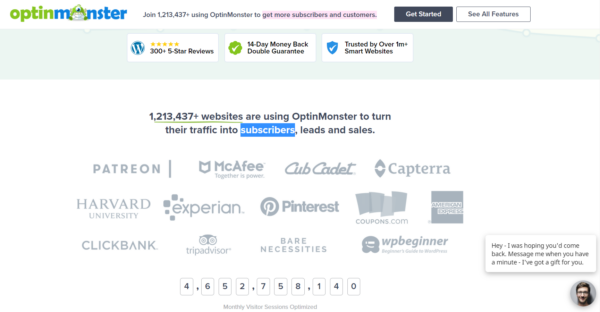Creating sales for any eCommerce business isn’t easy. But it’s especially hard for small businesses and new ones. Such businesses have a smaller budget and every action that’s taken, counts.
So, if you’re starting a new business, you need to create the setup from the very beginning to make sure that people trust your business right off the bat. And how do you do that?
The answer is by using social proof.
We’re going to take a look at how you can leverage social proof to grow your eCommerce business. Let’s dive in.
Why small and new businesses should leverage social proof
Social proof is a psychological phenomenon where people do something or make choices based on other people’s behavior.
For example, if you were headed to a restaurant and saw two of them side by side with the same menu, price range, and decor, you choose the one that had more customers.
Or if you had to pick a movie to watch, you choose the one that has higher ratings and better reviews.
This is social proof in action and by adding it to your eCommerce website in the following ways, you’ll start to see more sales and faster business growth.
So, creating setups in your business to highlight social proof is a critical activity you should take up early on. Let’s look at specific ways you can create social proof for your business.
Gather testimonials
Your existing clients can be your best advocates. Reach out to your customers and ask them to create testimonials that you can share on your website.
To make it easy, create a feedback form and ask a few questions that give customers the chance to describe their experience with your business in great detail.
You can use your form submissions to create a testimonial board on your website.

If you want to make a more powerful impact, try to get a video testimonial where your customer speaks about their business problems and how working with your brand made a difference. You can set up online interviews and record them. And then edit and post snippets of your customers’ testimonials to highlight different aspects of your business.
Encourage customers to leave reviews and ratings
Products with reviews and ratings create higher sales than ones that have no reviews. It’s important that you get customers to leave a rating a review on your website. Even if you get a variety of ratings and reviews that range from negative to positive ones, you’ll still see more sales than if you had absolutely no reviews at all.
All you have to do to encourage reviews is to send your buyers reminders or just add the option to leave a rating on your products.
Share your customers content
People often share their experiences with products and brands through social media. By using the right hashtags or looking up brand mentions, you can find out what people are saying about your business online.
Feature posts made by your customers on your own social media feed. You can also create a social feed right on your website with a social feed plugin. Here’s an example of a brand featuring user-created content with a social feed.

When people coming to your eCommerce site see social media content featuring your product or brand but made by other people, they’ll be convinced that your business is legitimate and will be more likely to buy from you.
Create push notifications
Push notifications are extremely advantageous because they enable you to send messages to users while they are active online. This means that the chances that they will see your content is extremely high and also that they’ll be more likely to engage with it.
Using a push notification plugin, create messages sharing the status of your products’ sales. For example, if a product is running out then a push message could automatically get sent to share how your product is selling fast and is going to run out.

Also, another way to use push notifications is to launch a message mentioning the location from where a recent purchase took place. As well as how recently this happened.
Such evidence of activity goes a long way to driving up conversions fast and creating social proof.
Highlight your business credentials
Has your business won any awards? Is your product featured on a major publication or website? Are you a member of an important association or body in your industry? If so, then you should be sharing this information with your audience.
Add badges showcasing your certifications, media recognition, and other credentials where external parties have endorsed or verified your business.

This is a powerful way to leverage the impact that authority figures to create social proof and build trust in your eCommerce site.
Collaborate with influencers and experts
It says a lot for your business when other people give you a stamp of approval. Reach out to experts and influencers online whose content and follower base match your industry or domain.
Ask them to review your website or product and share their feedback with their audience.
You could invite them to collaborate with you through interviews, cross-promotion on your blogs and social media, and other means.
Just interacting with other brands and people lends credibility to your new business that your audience will note.
Over to you
Creating an eCommerce business can be very rewarding as long as you have the right setups in place. One of the most important marketing activities that you need to carry out is building trust in your brand. And the most effective way to do this is to create social proof and highlight it on your site.
I’ve shared several ways social proof can dramatically increase sales and business growth. Apply them and you’ll give your fledgling business a good boost right from the get-go.
Digital & Social Articles on Business 2 Community
(41)






